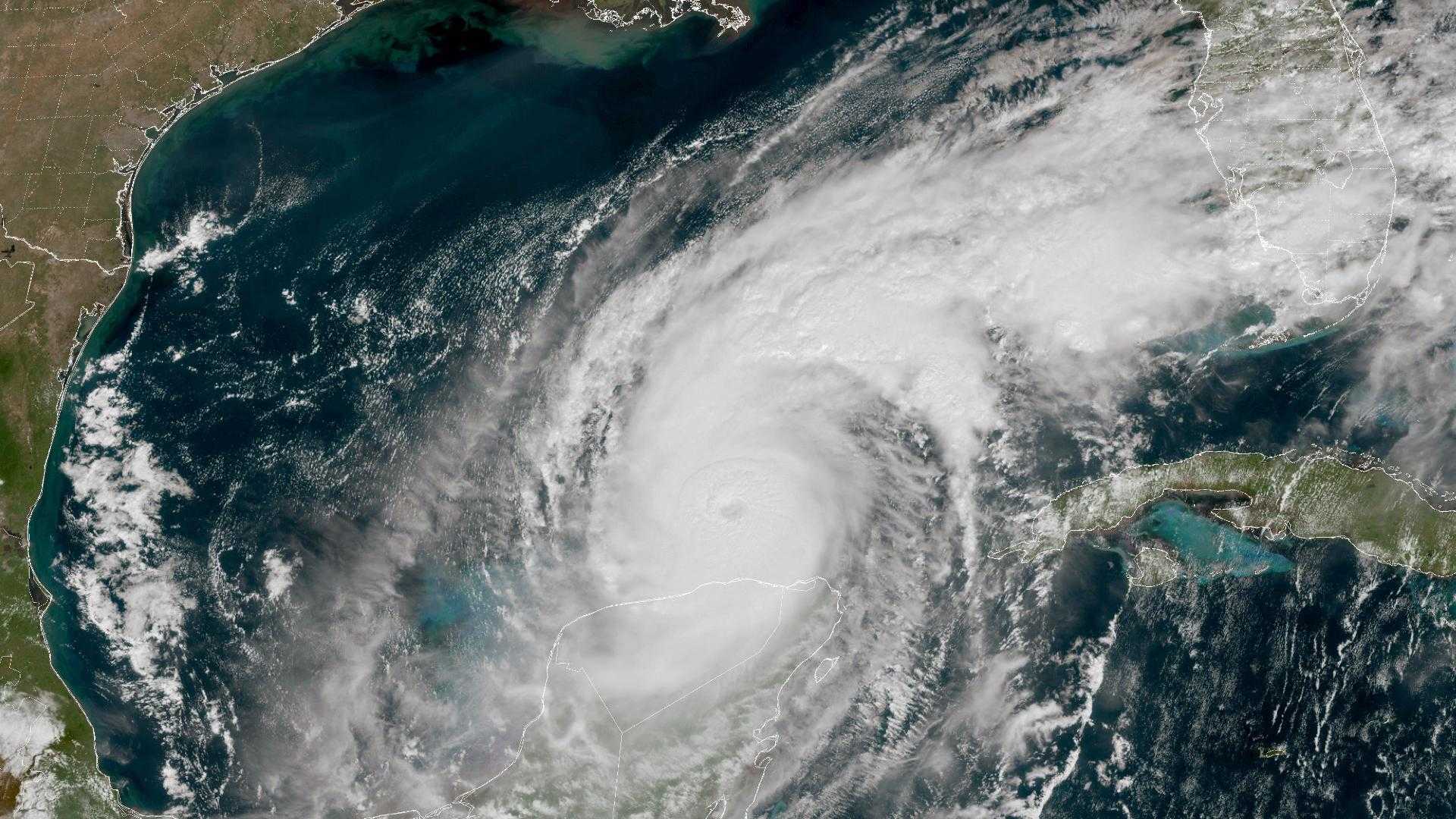News
Residents Urged to Evacuate as Hurricane Milton Approaches Florida

“I can say without any dramatization at all: if you decide to stay in one of those evacuation zones, you’re going to die,” Tampa Mayor Jane Castor urgently warned residents of the city’s west coast as the dangerous Hurricane Milton advanced. The hurricane is expected to hit late Wednesday night or early Thursday morning.
The U.S. National Hurricane Center (NHC) forecasts that Milton will make landfall as a “potentially deadly” storm due to the devastating winds and flooding expected. According to the latest NHC bulletin, the hurricane regained Category 5 strength with sustained winds of 270 km/h after a brief weakening, maintaining its path towards Tampa.
Mayor Castor, at a press briefing on Tuesday, stated, “What we can expect is for the storm to trend slightly south.” She further warned, “If a storm surge enters Tampa Bay, it has nowhere to go. It will flood our neighborhoods.”
Authorities have issued mandatory evacuation orders for flood-prone areas near water bodies in Hillsborough County, which includes Tampa, along with several other counties including Charlotte, Citrus, Collier, Hernando, Lee, Levy, Manatee, Pasco, Pinellas, Sarasota, St. Johns, and Volusia.
President Joe Biden also emphasized the urgency, stating, “The time to evacuate is now, now, now (…) It’s a matter of life or death.” He cautioned that this could be the worst storm the U.S. has seen in a century, drawing comparisons to the recent devastation by Hurricane Helene.
Florida and five other states are still recovering from Hurricane Helene, which struck just 10 days ago, leaving over 200 dead and hundreds missing—the highest toll since Hurricane Katrina in 2005. As Hurricane Milton bolstered in strength, thousands across Florida’s west coast and central regions began preparations.
Supermarkets saw a surge as residents stocked up on provisions, leading to empty shelves, while gas stations grappled with fuel shortages. As of Tuesday evening, 1,300 stations were out of gasoline.
The evacuation efforts have been hindered by severe traffic congestion, with vehicle numbers on some roads increasing by 150%, leaving many trapped for long hours. Kathie Allen-Tierney, attempting to travel to Atlanta from Tampa, described the journey as “horrible,” moving at merely 15 km/h for hours. “It has been terrible,” she told the BBC.
Governor Ron DeSantis urged residents to heed evacuation plans seriously. “We will not be able to come back to pick people up who stay behind,” he stated, announcing the setup of 36 shelters. Hundreds of flights in and out of Florida have already been canceled, severely affecting air travel.
On Tuesday, 346 flights at Tampa’s airport were disrupted, with another 378 scheduled for cancellation on Wednesday. The situation at Orlando’s airport is more severe, with a total of 781 cancellations anticipated.
Airlines have waived extra fees for itinerary changes, with some offering additional flights before the hurricane’s arrival for those leaving the state. The NHC predicts that Milton could make landfall as an “extremely dangerous hurricane,” especially affecting Tampa, home to over three million residents.
Meteorologists warn that Hurricane Milton could trigger torrential rains, sudden floods, strong winds, and possible storm surges, which could force water inland as far as 4.5 meters. Given its scale, it might be the worst storm to strike the Tampa area in nearly a century, posing risks of falling trees and damaged power lines, leading to extended power outages and isolation.
Though the hurricane showed a slight easing on Tuesday, experts advised vigilance, as it could double in size before hitting Florida. The storm’s core is expected to traverse central-west Florida and potentially re-enter the Atlantic Ocean, retaining hurricane strength.
According to Ben Rich, from the UK’s BBC Meteorology Service, “The strength of this storm is partially due to exceptionally warm oceans.” He noted, “The sea surface temperatures in the storm’s pathway are much higher than usual, a condition likely exacerbated by climate change.” Rich cautioned that despite a possible weakening to Category 3 status, Hurricane Milton remains a formidable threat, with its potential for “devastating combinations of hazardous winds, widespread torrential rains, and a storm surge up to 4.5 meters.”












